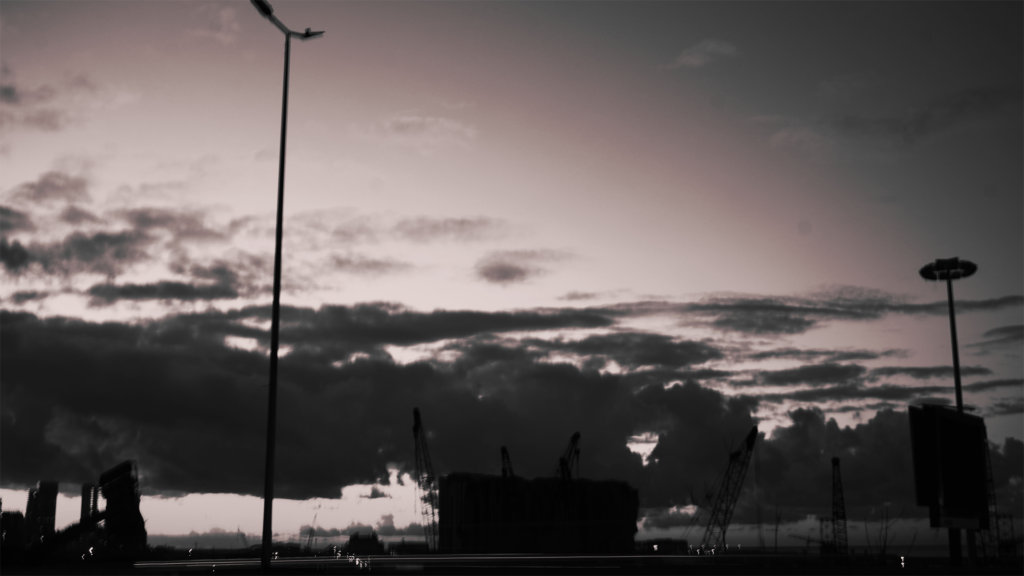
This story is published in collaboration with LitHub.
Songs have been sung, books written, and movies made about Beirut’s glory, misery, and aura, but Beirut is a feeling that can’t be described. It can only be lived. Lebanon is a tiny country, but its size isn’t relative to its relentless, daily chaos. The golden age of the 1950s and ‘60s remain unmatched, says the generation who lived it: nightclubs where artists from all over the world fought to perform, beaches that rivaled the French Riviera, and a people boiling with a joie de vivre, a thirst for life, culture, and joy.
Then came the civil war of 1975, which lasted fifteen years, and left the country fractionated and fractured. The country still suffers from that bloodbath. The same corrupt political class has been ruling the country ever since.
Year and year after, Lebanon sinks ever lower.
Then came August 4, 2020.
At 3 o’clock that afternoon, Yves left the construction site where he worked, and returned home to Jounieh, a city north of Beirut. Yves also volunteered for the Lebanese Civil Defense, an entity independent of the government, which helps in times of crisis such as fires and earthquakes. It even lent a hand to the Red Cross during the thawra, the political uprising of 2020.
Yves usually took a brief afternoon nap before hitting the climbing gym in Beirut, a few miles from the city’s port. But this day he will attend a fellow volunteer’s wedding. Besides, with Lebanon in a partial lockdown because of Covid, no one would be at the gym. Yves ate, and then locked the door of his bedroom to muffle the noise of his dogs and the television. He lay down for his nap.
Agoston moved to Beirut in 2019 with the woman who was now his fiancé when she got a job with the United Nations. He’s a therapist, and his days were now spent in online sessions.
His fiance would be home at 6 p.m., and he began preparing dinner. Sunsets are magnificent in Beirut and they enjoyed a panoramic view from their terrace — the Mediterranean, the city, and the port. Agoston had a session with a patient at 6:00. At 5:40 he walked out onto the terrace, having seen smoke rising from the port..
The firemen, he thought, would arrive soon. He set up his phone on a tripod to film them extinguishing the fire
Even as the therapy session began, Agoston was distracted by the fire at the port. He turned from his computer screen and glanced out the apartment’s floor-to- ceiling window.
But a few minutes into the session, he heard small explosions. Agoston had a rule: he would not cut short a session under any circumstances. But this felt different. He apologized to his patient. Fireworks appeared to be coming through the roof of a small hangar in the port.
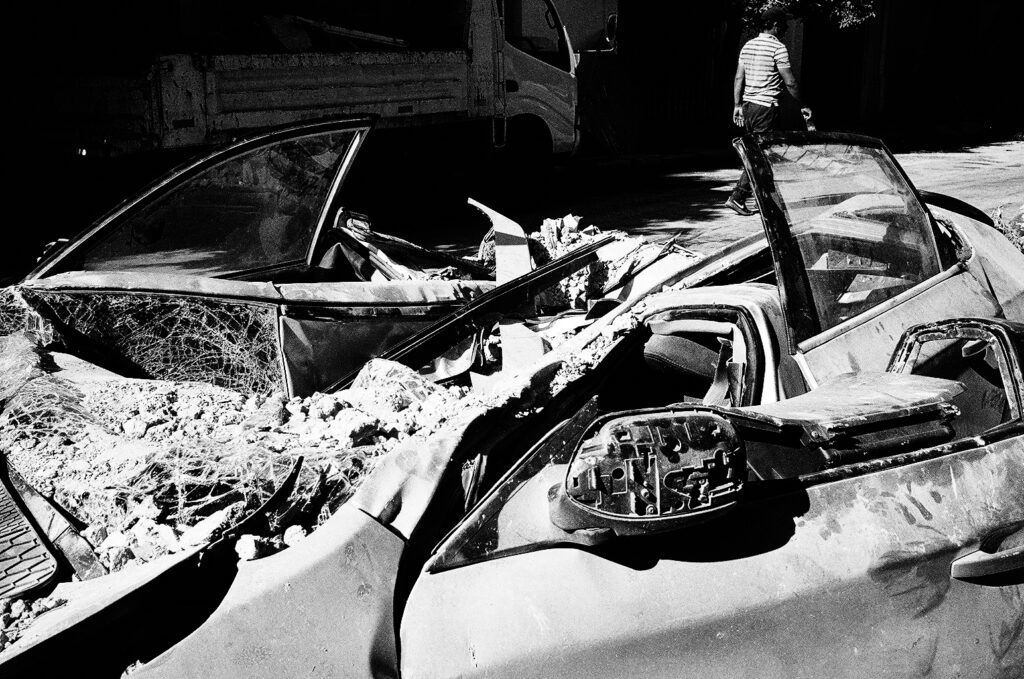
I had thought that telling the stories of other people would make writing about August fourth easier for me. But I came to see that it was as hard, if not harder, to do justice to these people and their stories of that day. Almost three years have passed and in that time I have tried to wrap my head around what happened on that August day. It feels as if a part of my life has been suspended. Dissociation is a known effect of post traumatic disorder, and for the past three years, my goal has been to distance myself from what happened to all of us that day.
It turned out that the only way for me to move forward with my life was to talk about August fourth and to listen to other people’s stories. It has taken me over two years to begin to write this story. It was hard to put words on paper, black on white. Procrastination may not be another symptom of PTSD, but avoiding confronting trauma only delays acceptance. It only takes more space in my brain and heart, space that I would love to empty out for happier, healthier memories.
On August fourth each second felt like an hour.
Miguelle could work from home, and so decided to be back in Lebanon for August. The fourth was her younger sister’s birthday and she, her sisters, and father converged on their home in Beirut. By five o’clock the sun was still high up in the sky. The whole family was joined by Leti and Remi, the two helpers who had been with the family for decades. Only Miguelle’s mother was not in Beirut. She was on a visit to the mountains.
Miguelle took her 6:00 p.m. work call in her younger sister’s bedroom — her older sister’s baby was sleeping in her room, and her dad was on the phone in the living room.
Miguelle dismissed the first explosion. She assumed a building had collapsed, or that a truck was making a racket dropping sand. She glanced at her watch. It was 6:02, and although she was tempted to go to the window and see what had made such a loud noise, she stayed glued to her desk.
Five minutes later, at 6:07, she felt another shake. As she turned her head, something happened that she did not understand.
Shortly after the first explosion, Agoston grabbed his camera to document what was happening. Now the air was heavy. He could almost hear the sound of flames nibbling their way through the hangar in the port. The smoke thickened. The city fell silent around him.
Shock waves rippled under his feet. Black fumes pierced the buildings below. It burst windows, one after the next , until the smoke was behind him.
It’s not going to hurt me, he thought. When he opened his eyes again, he was laying on the floor of the terrace, under a cloud of smoke.
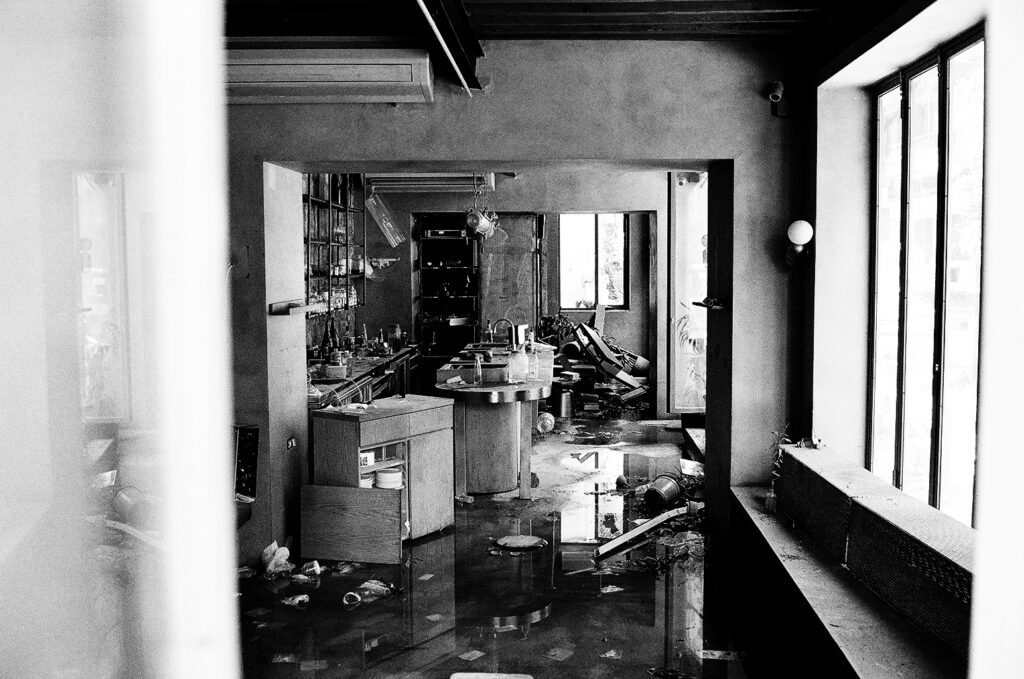
A deafening sound woke Yves. Why is there a cloud in the middle of August, he thought, looking out the window. And why is it pink, of all colors?
In the living room, the TV played footage from the heart of Beirut, of what looked like the set of a war movie. His first instinct was to call the civil defense office and ask about procedures.
But no one would know the magnitude of the explosion, or where it happened. So when his brother who lived in a neighborhood far from downtown called to say he was okay and only slightly injured, Yves tried to wrap his head around the scale of whatever had caused the sound that woke him.
When I think of that day I can almost feel the ground shaking again under my legs. I, too, had looked out the window, and saw the black snake of smoke pass through my window, if only just for a second. Then things went blank. I might have screamed. Or was it my mother? Was there a flash? What had I heard? I remember racing through the corridor to make sure my mother was okay. My cat tried to jump out the window. If it wasn’t for the plants I otherwise thought of as useless, he would have probably fallen five floors. I slowly approached, trying not to startle him. I could feel his claws gripping the plant branches. A few minutes later, I headed to the port with my camera. Oddly, I didn’t know it had happened at the port at the time. I was just following the trail of broken glass that intensified as I got closer to downtown.
Miguelle rushed out of the room and found herself faced with piles of doors in the hallway. Her sister’s husband screamed, “the baby, the baby.” It took her five full minutes to make her way to the kitchen. She did not realize she was barefoot as she climbed across scattered pieces of furniture. The nanny was with the baby and at least they were safe. In the kitchen, she found her father and younger sister. His face was covered in blood. He had been standing close to the window at the moment of the second explosion. Her younger sister was on the floor, unable to move her leg.
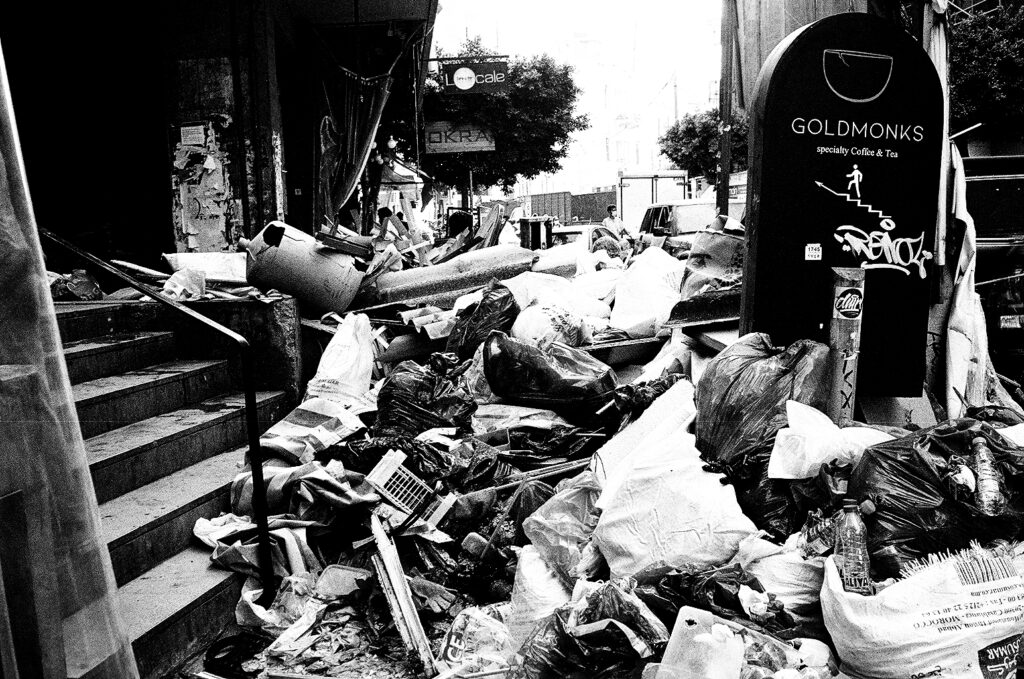
As Agoston got up, he saw the apartment completely upside down. The silence gave way to screams and car alarms. He looked around, and was struck by the feeling that nothing would ever be the same. Even as he tried to make sense of what was happening around him and whether this was all a dream the building began to shake. He asked himself, Can it collapse?
Miguelle and her family were the first ones to take the elevator. Somehow it was still functional. It had only been a few minutes since the explosion but the pink cloud still lingered in the sky. Miguelle’s goal was clear: get to the nearest hospital. She grabbed the first pair of shoes she found and tried to put them on her sister’s feet. A sneaker on one foot, and a sandal on the other, that would do for now.
Her younger sister, her father, and the driver set out to find a hospital. Miguelle returned to the apartment where her phone was buzzing with so many messages. Where to start? First, she reassured her boyfriend who was outside of Beirut. Meanwhile her older sister and the nanny took the baby and headed to her in-laws, who lived north of Beirut. Before Miguelle left the house she grabbed all the passports. She shoved them in a bag and stuffed it with valuables. Her phone kept ringing. She did not answer it. She thought of her sister and father searching for a hospital in the growing chaos.
A half hour had passed, and she decided she needed to escape Beirut.
Agoston sustained some bruises but nothing too serious. The room where he’d been talking with his patient was covered in shards of glass. The kitchen was splattered with zucchini, goat cheese, bacon crisps, teriyaki sauce: the dinner he had planned to cook splashed across the wall.
He reached his fiance who was still at work. Across the city people were thinking Beirut had been attacked or bombed. No one knew for sure. Agoston had inadvertently been one of the few who witnessed the explosion.
It took an hour for his fiancé to make her way home and in that time Agoston planned their next steps: they would not be able to sleep in the apartment for a while, so he packed their most valuable items and some clothes. He tried to get out but the elevator door was broken. Its steel door had detached from the elevator and slammed into Agoston’s apartment. He made his way down the stairs. The steps and ramps were stained with blood, shards of glass, and dust.
Outside the chaos was building. Injured people were screaming as they tried to find a way to the hospital.
It took time until I was ready to watch sunsets again. On the day of the explosion I had looked up at the sky, and seen a pink, orange, and white mushroom cloud. Like many Lebanese, I began experiencing PTSD symptoms in the months following the explosion. When the sky would turn warmer, and I’d see a color palette reminiscent of the sunset, I would get anxious, trying to avoid it. I used to love sunsets. I would chase them across the city, one of the first subjects I learned to photograph. When I lost my father at twelve years old, I grieved by walking the sadness away in the streets of Beirut, looking in the small alleys of my city for the security a parent would provide. I tried to capture sunsets through the lens of the camera I carried everywhere. They were my northern star, my anchor in such an ephemeral life. But August fourth robbed me of the comfort I had always found in the colors of Beirut’s sunsets. I was not alone. So many of us lost what we’d clung to for a sense of stability and safety. Since the explosion, I feel as if I am grieving all over again, mourning the loss of the city that is my home.
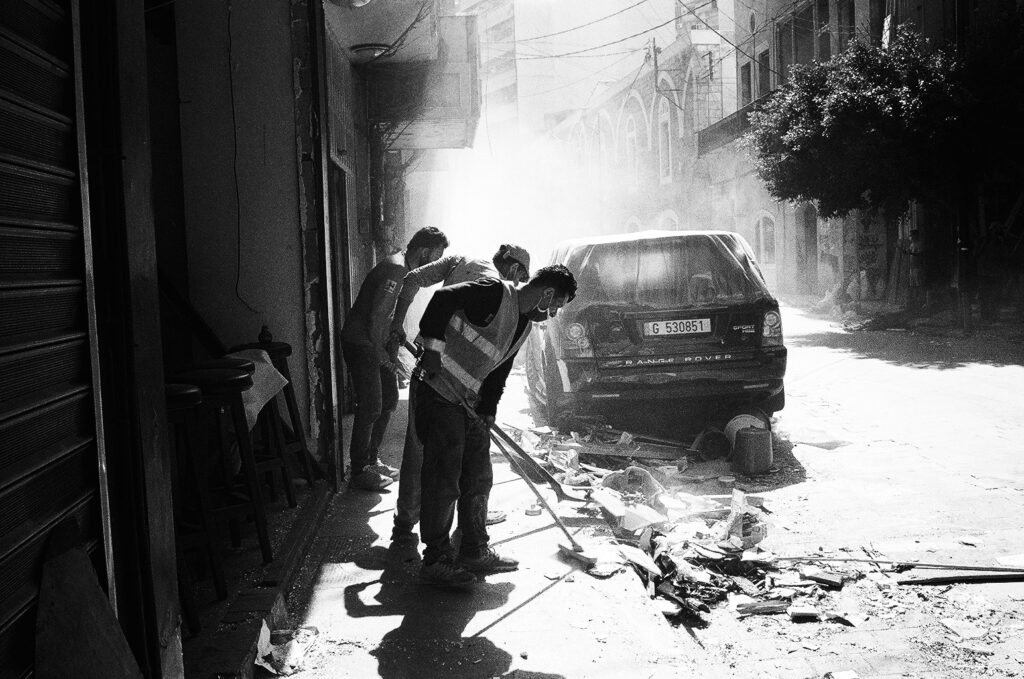
Miguelle, her brother-in-law, along with their helpers Leti and Remi, decided to shove aside furniture that had been spared or risked collapsing. Just as they were about to set off, Miguelle’s mother called. Not understanding the scale of the destruction she was determined to get back to Beirut and come to their apartment. She also tasked Miguelle with finding the daughter of Imelda, one of the employees of their mountain lodge.
Not knowing the name of Imelda’s daughter, Miguelle and her brother-in-law headed out to the street where she worked to try to find her. By now, Beirut had become a post-apocalyptic maze, where people were looking for loved ones, trying not to step on the carpet of broken glass covering the pavement.
They found the building where they thought Imelda’s daughter lived. They called to her and could hear her voice faintly, replying to their urgent pleas. Uninjured, Imelda’s daughter was locked out of the apartment because of the strength of the blast. She was walking the dog when the explosion happened.
The sky turned blue as night approached. It was now a little past 8 p.m.. Finally, two hours after the explosion, someone showed Miguelle a video of what happened. In disbelief, she watched the phone screen where a mushroom of smoke emerged from the port, before letting a pink and orange cloud rise.
Yves still had no clue what had caused the explosion. He felt powerless. It was so hard for him to put on his suit for his colleague’s wedding. He called the team leader of the civil defense to ask how he could help. But there was not much he could do. For now the Beirut team and first responders were on the ground. So he went to the wedding, where the atmosphere was tense. People were constantly looking at their watches and phones. Like Yves, the other volunteers were on edge, waiting to figure out their next step. The videos started trickling in. From different angles, from a balcony, from the sea, the videos showed only a glimpse of the magnitude of the explosion.
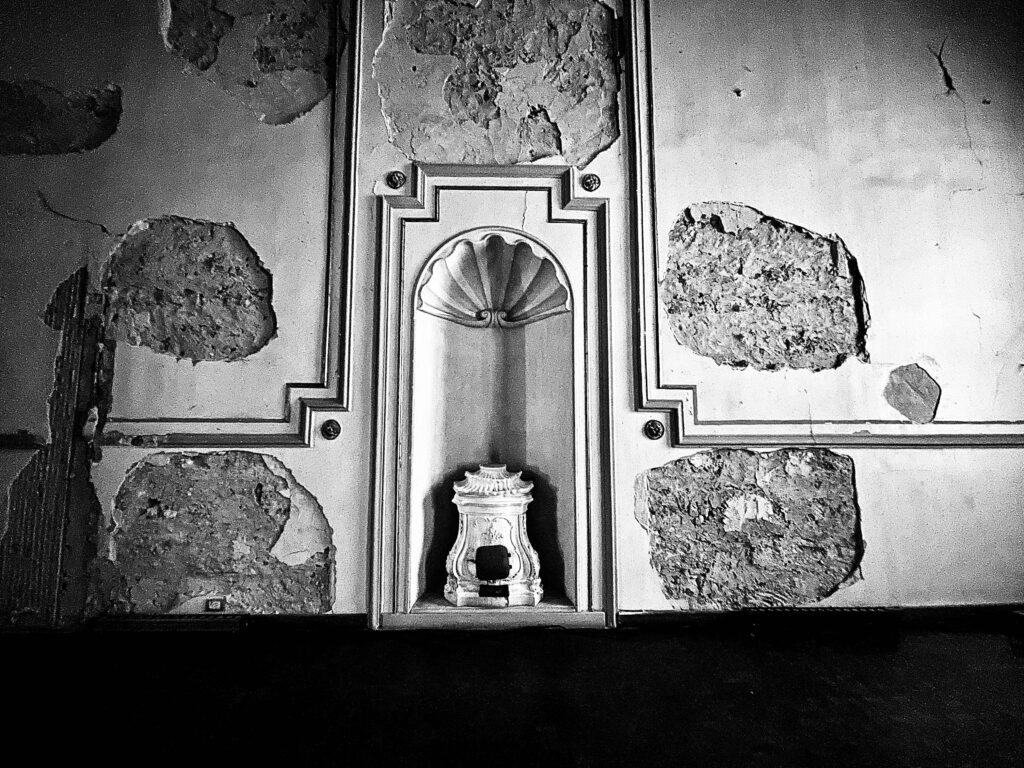
Miguelle’s mom somehow arrived back in Beirut. She had spent two hours making her way through the city streets and when she finally got to the apartment, and saw its chaotic state, she broke down. Miguelle decided she wanted to sleep somewhere close to Beirut. Her mother, Leti, Remi, and Imelda’s daughter all headed out to their family home in the mountains. Miguelle decided to drive first to her sister’s in-laws, a bit north of the city.
By nighttime, the roads were empty, and the city was an eerie ghost town. Miguelle dialed her best friend’s number while driving. Unable to speak, stuttering, trying to get words out, they found it hard to make sense of what they were living. After a half hour drive, Miguelle got to her sister’s in-laws. She still hadn’t eaten anything, but was fed a cheese, tomato, and olive sandwich, despite not liking olives.
It wasn’t until someone pointed out the blood drenched back of her shirt that she realized she must have been injured from all the glass strands. Messaging her father every fifteen minutes since they left home, Miguelle was waiting to hear from her younger sister. Every hospital has turned them away, prioritizing more seriously injured patients. By midnight, Miguelle’s father and sister finally got to a hospital in Zahle, an hour away from Beirut, where they found space to get an X-ray done.
At four in the morning, Miguelle’s sister finally got the result of her x-rays: she suffered a broken pelvis; their dad had broken several ribs. As soon as Miguelle got the news, she started messaging friends and family to update them. After almost ten hours of buzzing, beeping and ringing around, her phone still had battery left, but as she entered a bedroom to rest her eyes and mind a bit, her sister’s mother-in-law handed her a phone charger: the upcoming days are going to be long.
When the wedding ended, Yves and the other volunteers gathered at the Civil Defense’s headquarters outside of Beirut to decide on a plan of action. They walked into the center still wearing their wedding suits. They changed into their uniforms and protective gear before heading out into the city in a caravan of three vans.
The roads were empty, with neither a sound nor a silhouette in sight. They approached the city and Yves saw glass on the streets. Damaged cars sat on the side of the roads along with parts of buildings that must have fallen in the blast. They took the highway leading to the port, passing a collapsed building where a team was trying to rescue a family trapped beneath. He spotted one of their supervisors sitting on the sidewalk, his head down and a vacant look on his face. At 2:30 a.m.Yves’ team headed to the port. They would be the first there since the blast.
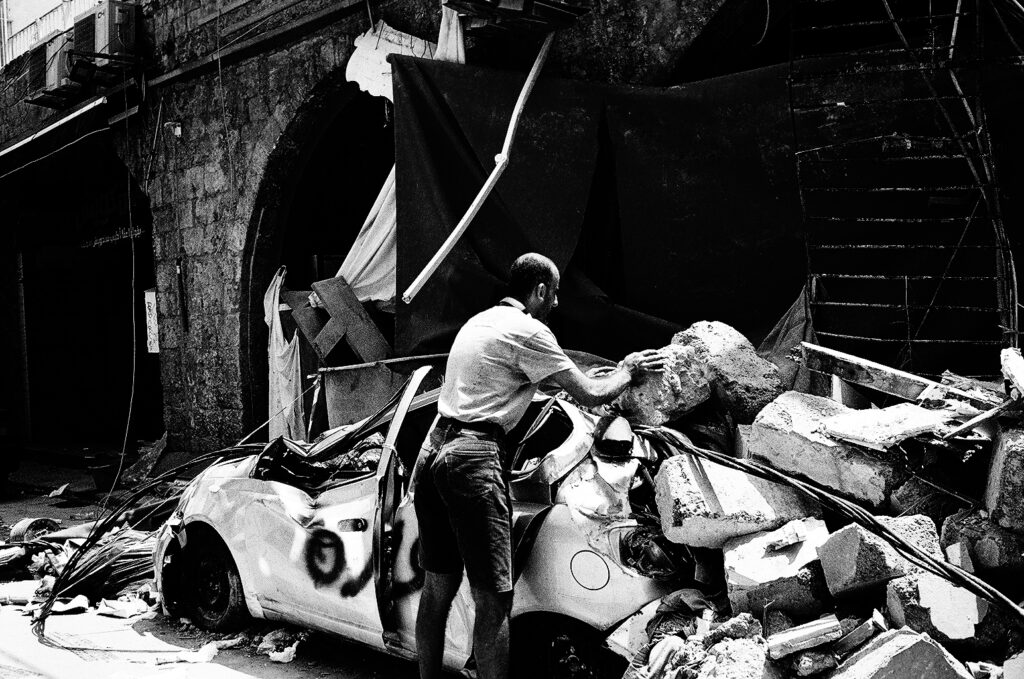
When I reached the highway close to the port, I didn’t know what to expect: Blood? Fires? Corpses? But there was nothing. No lights, no sounds, no one. I was alone with the sensation of glass crushing under my shoes. My feet were reluctant to move forward, and rightly so. In the distance I could make out a Red Cross truck, its alarm blasting against the dead of the night. The port was so close. I could smell the fire still burning. It was hot, as an August night should be, but a gentle breeze caressed my skin, sending chills down my spine. Or maybe it was drops of cold sweat from anxiety and stress. I would not be able to sleep that night. I tossed anticipating what the dawn would bring.
Yves and his team finally reached the port. The van parked about five hundred meters away from the wheat silos still standing amidst the devastation. Fires were burning across the port. A great tower of steel stood out against the darkness of the night.
A few volunteers from the civil defense had already scouted the site. They began by showing Yves and his team around, explaining to them how to navigate the port, how to divide the teams, and how to proceed with search and rescue. They opened up Google maps to situate themselves, and split the teams into smaller groups. The silos would be their meeting point. Yves’ team navigated its way between the carcasses of burnt cars, mountains of wheat, and small pits of fire. They worked according to a strict protocol: they walk in a single file, volunteers following one another, not stepping away from the designated areas. Some brought small flashlights but most of the team used their phones’ flashlights. The port stank of fire and burnt plastic.
Next to the silos they found a car crushed under a huge slab of concrete. Yves and another volunteer circled the car and saw an arm sticking out. They came closer and saw that the person inside was dead. Their supervisors told them to retrieve the corpse.
They started cutting through the steel of the car. So much debris has fallen on it that it took them a couple of hours to finally get to the body.
At six in the morning the sun slowly rose and they began taking in the scale of the destruction. They were not familiar with the port — no one is unless they’ve worked there. When they saw the immensity of the crater they had no words. Behind the silos lay the skeleton of what must have been a container boat. As they followed through with their search and rescue, they tried to avoid the mountains of wheat that swallowed whatever crossed the paths beside the silos.
Ambulances were going back and forth to the port to retrieve the dead. More than twenty bodies in bags waited to be transported, identified and claimed by loved ones.
In the months that followed, investigations and authorities concluded that the ammonium nitrate had been stocked inadequately and detonated.
By seven in the morning, the roads were jammed. Miguelle and her brother-in-law were on their way back to Beirut, navigating through shortcuts to avoid traffic, the roads still buried under glass and debris.
They arrived in the apartment, and made it through the makeshift door lock they had put in place the evening before. Miguelle took out her phone to record the state of the place. She called in a carpenter: the earlier they started cleaning, the faster they could get back into the apartment. She divided the piles of debris: what’s to toss, what’s been spared, and what can be repaired. A couple of hours later, the apartment looked slightly better, aside from the empty window frames and broken furniture.
At 10:00 a.m., Yves and his team decided to call it a day.They sat on a sidewalk, catching their breath, sharing some water. They had been working for almost twelve hours and could barely see ahead of themselves. They asked for backup and by midday, the port was full of medical teams, trucks to cart off the largest pieces of debris. New volunteers to continue the search and rescue.
August fifth was Miguelle’s younger sister’s birthday. After being discharged from the hospital, she would be transported to the family’s mountain house where she would remain in bed for the next two months. Miguelle and her boyfriend set out for the mountains to join the rest of the family. On her way there, she prayed for a flower shop to be open, so she could buy a bouquet for her sister. She spotted an open convenience store where she bought flowers and a big red teddy bear, and headed for her family house where everyone she loved was alive and together.
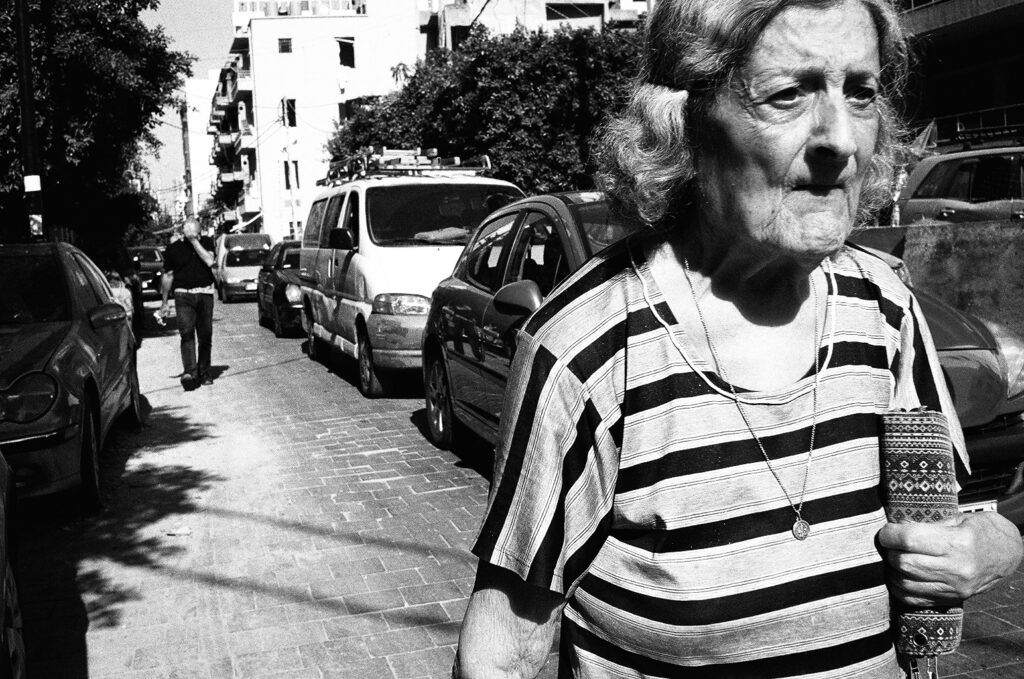
Almost three years have passed since the explosion and it is safe to say that with all it has suffered over the years, Beirut has not yet recovered from what happened on August 4, 2020.
Did life return to normal after the blast? Absolutely not. Was the explosion the tipping point in Lebanon? In some ways, yes. So many of the country’s youth left the following year. They had been leaving already beginning with the financial crisis that engulfed Lebanon in 2019. But after the explosion, living conditions continued to deteriorate, and for many the explosion was the final push they needed to leave the country. There is no norm in Lebanon anymore, no stability. Was there ever a normal? Will there ever be a normal?
After the explosion, I couldn’t quite understand what would become of Beirut. I naively had faith it would return to what it was, or become yet another version of itself where I could still grow. Was it the first phase of grief? The denial, the running away from reality. When I mourned my dad, I ran away from grief through the streets of the city.
But now mourning my city, where do I run to? Who do I run to? It has taken me almost three years to accept that my city is gone, which leaves me to grieve for a life I won’t ever have again. I’ve entered the last stage of grief: the acceptance that home won’t ever feel like home again.
When Miguelle looks at the sunset from her newly adopted home in London, one thought comes to mind. “I wish I was looking at it from Beirut,” she says. “It’s sad but true.”
Born and raised in Lebanon, Tamara Saade is a journalist and photographer currently based in Beirut. She mainly covers Lebanon’s ever-changing political landscape, focusing on human rights, with a documentary approach, through photography, writing, and videography. Working with different photographic formats and artistic platforms, she uses the intersectionality of the medium and the message to highlight her stories. She has worked with The New York Times, The Washington Post, the UN, Vice International, Al-Jazeera, the Delacorte Review, and Megaphone amongst others. She exhibited photographs in the US, France, the UAE, Norway, and Lebanon.
